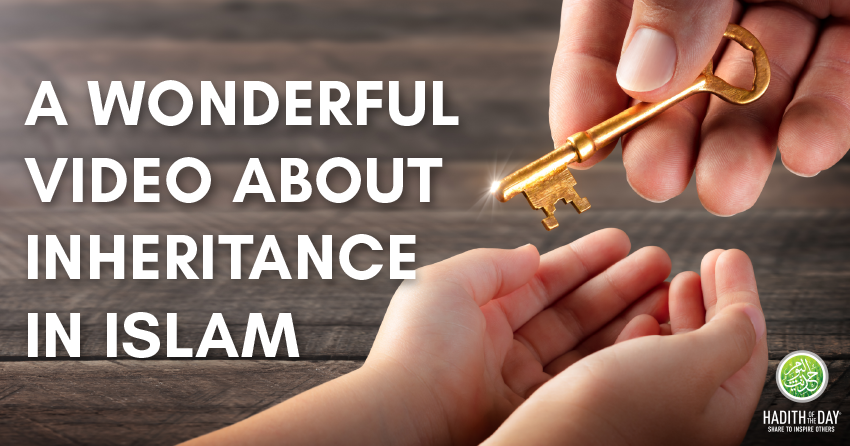Aisha Bint Abu Bakr (RA)

Aisha Bint Aby Bakr RA
Umm-Al-Mu’minin (Mother of Believers)
Note: For ease of reading, we have not inserted “May Allah be pleased with her (RA)” each time Aisha’s RA name or the name of each Companion is mentioned, but please take it that the salutations apply to all of them, may Allah be pleased with them all.
Narrated Amr bin Al-As: I came to the Prophet SAW and said, “Who is the most beloved person to you?” He said, “Aisha.” I asked, “Among the men?” He said, “Her father.” I said, “Who then?” He said, “Then Umar bin Al-Khattab.” He then named other men [Bukhari].
Who is Aisha ibn Abu Bakr?
Out of the wives of the Prophet Muhammad SAW, two have received prominence above the others. The first was Khadija, and the second was Aisha. Aisha was the favourite daughter of one of the Prophet’s favourite companions, Abu Bakr, and was the most beloved wife of the Prophet SAW after Khadijah.
Sawdah, the Prophet’s SAW second wife, and Aisha entered the life of the Prophet’s SAW household after the death of Khadijah. If we recall, the Messenger of Allah SAW never had another wife for over two decades during the time he was married to Khadijah. He was deeply grieved by her death, and it is acknowledged that he still felt sorrow at her passing years later.
Those around the Prophet SAW understood the sadness that he faced, not just for the loss of his lifetime companion, but also for the other turbulent events that happened in what we now call the Year of Sadness. While many were concerned and offered their support in their own individual ways, Khawlah bint Hakeem was the one who took the initiative and broached the subject of marriage with the Prophet SAW. Khawlah was the wife of `Uthmaan ibn Math`oon, both of them being among the first persons to embrace Islam. It was Khawlah who originally suggested that Abu Bakr should offer his daughter Aisha for marriage to the Prophet SAW. For the sake of completeness, it is worth mentioning that it was also Khawlah who initiated the marriage of Sawdah to the Prophet SAW, however we shall not be covering this aspect in this article.
The suggestion to marry Aisha, while well received, proved to be diplomatically delicate for Abu Bakr, for the six year old Aisha was already engaged to a non Muslim, Jubayr ibn Mut’im. It would have been socially unacceptable for Abu Bakr to have broken the engagement. However, with the will of Allah, the engagement was repudiated by the potential groom’s family on account of their disbelief in Islam, enabling Aisha to be engaged to the Prophet SAW.
Allegations against the marriage
We pause at this juncture to deal with a sensitive topic, which is the age of Aisha during marriage. Of late, this has created unnecessary controversy. However, if we look at the historical accounts of the social structure of the time, Aisha was already engaged to another man prior to her marriage to the Prophet SAW, indicating that it was socially acceptable for marital alliances between families to be forged at an early age. Also women during that time reached maturity relatively quickly – psychologically, emotionally and physically – due to their upbringing and surroundings. In the case of Aisha, she attained intellectual, physical and emotional maturity exceptionally fast compared to her peers.
If we look at the various claims made against the Prophet SAW during his lifetime and after – he was called a madman, a liar, a magician, possessed by the devil – yet not one of these claims, even by his own worst enemies, touched upon his marriage to Aisha. Had the marriage been controversial, his enemies would have scandalized and sensationalized the event. Yet no claims of this sort were raised for hundreds and hundreds of years, whether by the pagan Arabs, the Romans, or any of the subsequent societies, until very recently.
If allegations were made against the Prophet SAW in respect of abuse or impropriety during the marriage, then one would expect all these claims to surface after his death, when Aisha was free to speak without fear of repercussion from the Prophet SAW. Yet, even after his death, there is not a single recorded account of any complaint or statement about their marriage, save that the Prophet SAW was the best of husbands and that the marriage was an extremely happy and harmonious one. In today’s society, very few, if any, women would describe their husbands in such unequivocal terms. Aisha was nineteen when the Prophet SAW passed away, and until her own death over forty five years later, she spoke of him lovingly. The aspersion cast upon the marriage by the modern media is totally unsubstantiated, as there is not a single recorded statement to support any of these those claims.
Life after Marriage
Although the engagement took place while Aisha was six or seven, they were only married around three years later, shortly after she migrated to Medina, by which time she had reached puberty. She moved into the household of the Prophet SAW. It was not luxurious by any means, the room was barely six feet wide, built beside the mosque out of clay and palm trees. The ceiling was so low that a person standing upright could touch the roof. The room was sparsely furnished with a mattress of palm leaves which lay on a mat. It was not a room of worldly wealth, but it was rich in spiritual treasures.
The Messenger of Allah SAW later told Aisha, “You have been shown to me in (my) dreams on three nights. An angel was carrying you in a silken cloth and said to me, `This is your wife.’ And when I uncovered it; behold, it was you. I then said: `If this dream is from Allah, He will cause it to come true.'” [Bukhari and Muslim].
Aisha said “I have been given nine (virtues) that were not given to any woman after Maryam bint Imran (the mother of Nabi Isa AS): Jibril AS descended with my picture in his sleep until Allah’s Messenger SAW was commanded to marry me; he had married me when I was a virgin and he never married any virgin besides me; his soul was taken while his head was on my lap and he was buried in my house. The angels had surrounded my house, I am the daughter of his Khalifah and his Siddiq; my excuse was revealed from the heaven. I was created pure. I have been promised forgiveness (of sins) and noble provision.”
Thus, this was a marriage between two exceptional people – the last of the Prophets who was nearing the end of his life, and a woman still at the beginning of hers. Aisha was a very intelligent and observant young girl with an extremely sharp memory. Due to her proximity with the Prophet Muhammad SAW, she was able to recount and educate the ummah on intimate details regarding marital relationships, personal grooming, medical prescriptions and behaviour within the household.
Aisha spent approximately nine or ten years of her life with the Prophet SAW. Her greatest asset was not her youth or beauty, but her piety, extraordinary generosity, ability to record the sayings and behaviour of the Prophet SAW, her accurate memory, and her intimate knowledge of the Qur’an. She absorbed knowledge like a sponge and this ability made her the educator and transmitter of the sacred knowledge to men and woman. A great deal of the knowledge that we still have today, about how our beloved Prophet SAW lived and behaved, was first remembered and then taught to others by Aisha.
Aisha became so wise that one of her contemporaries used to say that if the knowledge of Aisha was placed on one side of the scales and that of all other women on the other, Aisha’s side would outweigh the other. She used to sit with the other women and transmit the knowledge that she had received from the Prophet SAW long after he had died. As long as she lived, she was a source of knowledge and wisdom for both women and men. Abu Musa once said, “Whenever a report appeared doubtful to us, the Companions of the Prophet SAW, and we asked Aisha about it, we always learned something from her about it.”
As the prophetic guidance continued to be revealed through Prophet Muhammad SAW during the years of their marriage, Aisha’s way of life – along with that of all the Muslims – was gradually reshaped and refined. It was during this time that Islamic jurisprudence was established and when the rites of worship in Islam were finalised and clarified. In other words, it was during their marriage that the teachings of the religion of Islam were perfected.
Aisha was once asked to describe the Prophet SAW, and she replied that he was ‘the Qur’an walking’, meaning that his behaviour was the Qur’an translated into action. She did all that she could to do likewise. Thus she not only knew and embodied the Sunnah, but also she memorized the Qur’an by heart, understood it and lived it. Such knowledge was eventually compiled in various Islamic literature, providing an encyclopaedia for generations to come, supporting the Muslims and even the Caliphs of the later generations.
It was during the course of their marriage that, amongst others, the battles of Badr, and Uhud, and Al-Khandaq (the Ditch) were fought. These were the three major battles against the Quraish, that shifted the balance of power out of the hands of the disbelievers and into the hands of the Muslims. Although she was still very young, Aisha participated in them all, bringing water for the Muslims warriors, and helping to look after the wounded. She witnessed life, and she witnessed death – both in the way of Allah and in the way of the disbelievers – and she understood both. Indeed one of the meanings of her name, Aisha, is ‘life’.
Aisha’s knowledge was like a beacon that illuminated the hearts and minds of Muslims for generations to come. This is not surprising, for she is one of the four people who have transmitted more than two thousand hadiths, the others being Abu Huraira, Abdullah ibn Umar, and Anas ibn Malik RA. Al-Haakim said in his book, Al-Mustadrak. “One fourth of the rule of Sharee`ah was narrated on the authority of Aisha.” Umar Ibn Al Khattab, during his own Caliphate said that without Aisha, he would be lost and destroyed, in every small and big issue, he used to ask her for advice and consultation. How many Muslim men today seek consultation from a woman if she has more piety and knowledge than them? How many Muslim men today respect their wives, spouses, or daughters or anyone in society for their knowledge and calibre, regardless of their gender? How many Muslim women today are authorities on religious knowledge and texts?
The Fitnah
If there was a dark cloud in Aisha’s life, it was when the hypocrites conspired against her and made accusations regarding her honour and fidelity to the Prophet SAW. An accusation of adultery is a very serious charge, and this slander created a huge deal of strife and discord in the household. The details of her personal anguish and the events that transpired can be found in all reliable biographies of her life. Suffice to say, however, that Aisha remained steadfast in the belief that Allah would reveal the truth, and she was eventually acquitted, not though a trial of men, but by Allah Himself in the clearest terms, through the following revelation:
Surely those who fabricate the lie are a group from among you. Do not think it is bad thing for you; no it is good for you. Every man will receive what he has earned for this sin, and whoever had the greater part in it will have a great punishment. Why did the men and women believers, when they heard it, not think good in their selves and say: ‘This is clearly a lie?’ Why did they not produce four witnesses? Since they did not produce witnesses, they are certainly liars in the sight of Allah. If it were not for the grace of Allah, and His mercy on you in this world and in the next world, an awful doom would have overtaken you for what you repeated. Since you received it with your tongues, and repeated what you did not know anything about with your mouths, you thought it was a trifle, but in the sight of Allah it is serious. Why, when you heard it, did you not say: ‘It is not for us to repeat this, Glory be to You (O Allah), this is a serious rumour.’ Allah warns you to never repeat anything like this again, if you are indeed believers and Allah makes the signs clear to you; and Allah is Knowing, Wise. Surely those who love to spread around slander about those who believe will have a painful punishment in this world and in the next world; and Allah knows and you do not know. (Qur’an 24:11-19).
The fact that Aisha’s honour and reputation had been protected by a revelation from Allah could not be ignored by anyone, and from then on everyone was more aware of her high station with Allah.
Her Generosity and Simple Lifestyle
Aisha endured poverty and hunger with the Prophet SAW. It is authentically related that months went by without the fire in the hearth being lit, i.e. without any food being cooked, during which time they simply survived on dates and water.
Once the Prophet SAW stayed away from his wives for a month because they had distressed him by asking of him that which he did not have. This was after the Khaybar expedition when an increase of riches whetted the appetite for presents. Returning from his self-imposed retreat, he went first to Aisha’s apartment. She was delighted to see him but he said he had received revelation which required him to put two options before her. He then recited the verses:
O Prophet, say to your wives: ‘If you desire the life of this world and its adornments, then come, and I will make you content, and I will release you with a fair release. But if you desire Allah and His Messenger and the abode of the next world, then truly Allah has prepared an immense reward for those of you who do good.’ (Qur’an 33:28-29)
Her reply was: “Indeed I desire God and His Messenger and the abode of the Hereafter,” and her response was followed by all the other wives.
Once, when the Muslims were favoured with great wealth, she has given a gift of one hundred thousand Dirhams. She was fasting when she received the money, and distributed it to the poor and needy, even though she had no provisions in her house. Shortly after that, her maid servant said to her, “Couldn’t you have brought a dirham’s worth of meat with which to break your fast?” “If I had thought of it,” she replied, “I would have done so!”
She developed the nickname the Mother of Fragrance, for every time a beggar knocked on her door, she would touch the money with perfume before giving it to him. When asked why, she explained that the charity would reach Allah before it reached the beggar’s hands, and she wanted the charity to be given to Allah in a fragrant condition.
In another report, a needy person knocked on the door. She only had one grape, and gave it to him. When asked what the value of a single grape was as a charity, she quoted the following verses from the Qur’an:
“So whoever does an atom’s weight of good will see it, And whoever does an atom’s weight of evil will see it.” (Qur’an 99:7 – 99:8)
She rationalised – how many atoms are there in a grape?
How many of us are of such a status, where our vigilance, thinking and even the smallest action is completely for the pleasing of Allah, and reflected by the Qur’an and teaching of the Prophet SAW.
The death of Muhammad SAW and after
While the Prophet SAW was fair in the treatment of his wives and loved all of them, Allah is the owner of the hearts, and the Prophet’s SAW heart was inclined towards loving Aisha the most.
There are many accounts which indicate that Aisha was the favourite wife of the Prophet SAW after Khadija. The Companions noticed this and reserved their presents to the Prophet SAW when it was his turn with her. Naturally this inspired some jealousy amongst the other wives, however, Aisha was gracious and never belittled them, nor did she view them as her rivals. The only wife that she was truly jealous of was Khadija, the Prophet SAW’s first wife, who had passed away before she was married to him.
Aisha said: “The Prophet’s SAW wives sent Fatimah, the Prophet’s SAW daughter to him. She asked permission to enter while he was lying down with me in my woollen blanket. He permitted her to enter and she said: `O’ Messenger of Allah, your wives sent me to you demanding for fairness concerning (your treatment of) the daughter of Ibn Abu Quhaafah (meaning Aisha, daughter of Abu Bakr).’ And I was there (listening but) silent. The Messenger of Allah SAW told her, `O’ daughter, don’t you love whatever I love?’ She said: `Yes.’ He then said: `Then you should love this (lady).”‘
Hence, it was fitting that Allah chose for the Prophet SAW to breathe his last when in her house. Narrated Aisha: During his sickness, Allah’s Apostle SAW was asking repeatedly, “Where am I today? Where will I be tomorrow?” And I was waiting for the day of my turn (impatiently). Then, when my turn came, Allah took his soul away (in my lap) between my chest and arms and he was buried in my house. [Bukhari]
The room in which he died is the only room of his wives which is preserved up to today. Two years later, his Companion, Abu Bakr, Aisha’s father, was buried beside him. Later, as Umar Al Khattab was in his death throes, he appealed to Aisha to be buried next to Muhammad SAW. Aisha had actually reserved that space for herself, for she wished to be buried next to her husband. However, the love that the Prophet SAW bore for Umar caused her to honour Umar by sacrificing her beloved burial ground for him. Such was her generosity and nobility.
Her chaste nature was such that she used to say (before Umar was buried there): “It is only my husband and my father that are here.” But after Umar was buried there, she said: “I do not longer enter the room but with my garment fastened because I was shy (of being in the presence) of Umar.”
After the death of Prophet Muhammad SAW, Aisha was readily involved in continuing his messages. She was present through the reigns of at least the first four Caliphs. She continued commitment to the memory of her husband and her firm belief about being reunited with him in the Paradise.
In the month of Ramadhan in the year 58 A.H. Aisha had her fatal illness and she said in her will:
“Do not follow my bier with a fire nor lay a red velvet piece.”
She then surrendered her soul in the night of 17th of Ramadhan at the age of sixty six.
Aisha’s life after the death of the Prophet SAW is evidence against all the stereotypes of how Islam treats women, and accusations of how women in Islam have no status. We can read the detail of all the stories of Aisha and realise the wisdom of Allah and His Messenger, to have, for over forty years after the death of the Prophet SAW, the highest and most authentic level of knowledge from Aisha.
Look at the ultimate wisdom of Allah. Abu Bakr sacrificed his entire life in the path of Allah, and Allah granted him a beautiful gift which was to let his daughter be the most beloved wife of Rasulullah SAW after Khadija, and decorate his daughter Aisha with the charm, intelligence, integrity and memory, and make her the library of knowledge and source of wisdom for many generations to come. She carried the in depth legacy and knowledge of Rasulullah’s SAW memory. One cannot open Islamic books about the Qur’an, the biography of Muhammad SAW or jurisprudence, without finding Aisha’s name referenced in there. What a great honour for such a woman.
Aisha, Umm-Al-Mu’minin, even though she never had a single child, yet she is the Mother of Believers.
Source:
Ibn Kathir: Wives of the Prophet Muhammad SAW
Great Women of Islam – Mahmood Ahmad Ghadanfar
Women Around the Messenger – Muhammad Ali Qutub
Men and Women Around the Messenger – Sa’d Yusuf Abu Aziz
Great Women of Islam – Mahmood Ahmad Ghadanfar (translated by Jamilah Muhammad Qawi)
Since You’re Here… we have a small favour to ask.
In these extraordinary times, millions rely on HOTD for daily uplifting & inspiring content. Established since 2009 and with your kind support we’ve seen readers elevate their Imaan & strive for better on a daily basis. We’re committed to keeping our content freely available and open for all readers. Every contribution, however big or small, makes a difference and help us spread knowledge to millions daily
HOTD is something special, it’s a place where people can come to be inspired, to renew their faith, to learn and share knowledge, to fall in love with our faith and also our Prophet (peace and blessings be upon him and his family).
All content on HOTD is free. We believe what we do in this life builds for the next one and we work tirelessly with the aim to please Allah and inspire the global Muslim community as
well as providing information and inspiration for anyone interested in Islam. We simply cannot do this without your support and your support helps us continue our services.
If there were ever a time to join us, it is now. You can support HOTD and help sustain our future. Support Hadith of the Day and make a one-off donation or give regularly from as little as £10 a month Jazak’Allah Khayr – whatever you donate will come back to benefit you Insha’Allah as whatever is spent in the way of Allah is an investment in the future and the next life. Thank you.




